Search Results
Showing results 1 to 12 of 12

Cleaning with Dirt
Source Institutions
Learners build a filter from old soda bottles and dirt. They create polluted water, and pour it through their filter to clean it.

Plugged in to CO2
Source Institutions
In this activity, learners investigate various appliances and electronics, discovering how much energy each uses and how much carbon dioxide (CO2) is released to produce that energy.
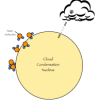
Do Cities Affect the Weather?
Source Institutions
In this activity, learners explore clouds and how they form.
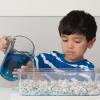
Water Underground
Source Institutions
Many people get water from a source deep underground, called groundwater.
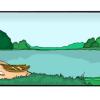
Rock Bottoms
Source Institutions
Learners add acid rain (nitric acid) to two cups that represent lakes. One cup contains limestone gravel and the other contains granite gravel.

Oil Spill Solutions
Source Institutions
In this activity, learners explore how environmental engineers might approach solving the problem of an oil spill.
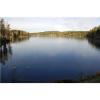
Water Walk
Source Institutions
Learners take a field trip along a local body of water and conduct a visual survey to discover information about local land use and water quality.

Human Impact on Estuaries: A Terrible Spill in Grand Bay
Source Institutions
In this activity, learners make a model of a pollution spill that occurred at Bangs Lake in Mississippi and measure water quality parameters in their model.
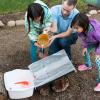
Runaway Runoff
Source Institutions
When it rains, water can collect on top of and seep into the ground. Water can also run downhill, carrying soil and pollution with it.

Monitoring Amphibians
Source Institutions
In this field study, learners discover how to collect data in the field and how their efforts can help certain animals, specifically, amphibians.

Water Treatment
Source Institutions
Water treatment on a large scale enables the supply of clean drinking water to communities.

Hatch-a-Cyst
Source Institutions
What is the optimal environment for hatching brine shrimp? Using a scaffold, learners design and conduct experiments testing the effect of a single abiotic factor on brine shrimp cyst hatch rate.
